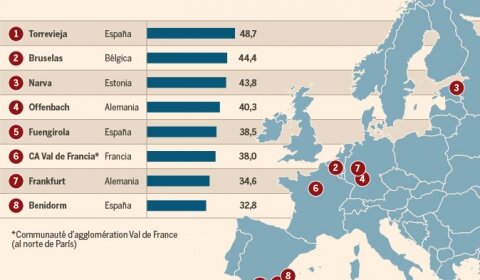
Unfortunately, there seem to be more and more of them, but luckily we don’t generally tend to have to use them very frequently. I’m talking about the telephone numbers that begin with a variant of 800 or 900.
Well, actually, there’s 900, 901, 902, 905 and then 800, 803, 805 and 807 – plus a few others that we’ve probably had to use on occasions.
And, not even the best flat-rate tariff will exclude you from having to pay, meaning that if you’re not careful, your monthly phone bill could increase to exorbitant figures.
Nevertheless, calling a 901 number is not the same as calling a 905 number, so read this article to find out which will damage your bank balance and which are easier to deal with.
Free numbers
The only free numbers of this type are those that begin with 800 or 900. In this case, the receiver pays for the call, and they are known as ‘automatic reverse numbers’ and work as such. However, there are companies that can block some of these calls. For example, ones that only offers a service in a certain region of Spain can block calls that are made from outside of that region, in which case the caller would have to find an alternative number to call.
901
The least expensive number of this type to call are those that start with 901. In this case, the caller and the receiver share the cost of the call. In general, ringing a 901 number would be the equivalent of ringing a local number, and the receiver would pay the rest of the charge. However, be warned that this rule does not apply if ringing from a mobile phone, as the cost could multiply by six.
902
When using a 902 number, the cost of the call will increase slightly. The caller will pay the whole of the cost of the call, which, from a landline, would be similar to that of an interprovincial call. As with the 901 numbers, however, the rate ascends considerably if calling from a mobile. A five-minute conversation from a landline would set you back about 50 cents, while the same conversation from a mobile would cost about 2,5 euro.
905
So, the caller may start to get offended with the cost of a call when it starts with 905. This is the case for many competitions that you may see advertised on television. Beware of these numbers as there are rising costs associated with them. Although the first three numbers (905) indicate that there is a special rate attached to the call, costs rise even further depending on what the fourth number is. If the fourth number is 1, it will be cheaper, but from the number 4, the price of the call could multiply four times over.
800 numbers
As well as having to use telephone numbers with the 900 prefix, we may also find ourselves calling numbers that begin with some form of 800. Some of these correspond to a certain type of service:
803: Exclusive adult service
806: Leisure and entertainment services
807: Professional services
As with the 905 numbers, it is the fourth digit that determines whether calling this number will be cheap or astronomical. The higher the fourth digit, the more expensive the call. In the case of the fourth digit being a 6 or higher, callers may need authorization from their telephone company to go ahead, as these type of services will probably have a rate higher than one euro a minute.
118 numbers
Finally, let’s take a look at the telephone numbers that start with 118. They have come from the 1003 numbers from Telefónica that are basically used as some sort of guide. The tariff for these numbers are not regulated at all, and could reach up to 4 euro per minute. The only exception is 118118, which belongs to Telefonica and forms part of its Universal Service. Callers will be charged a unique price for the call instead of a flat rate per minute. However, if you ring this number from a phone box, it’s free and you won’t be charged at all.
Source: www.expansion.com
Categories:









